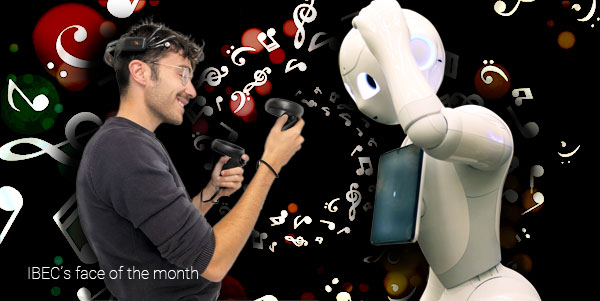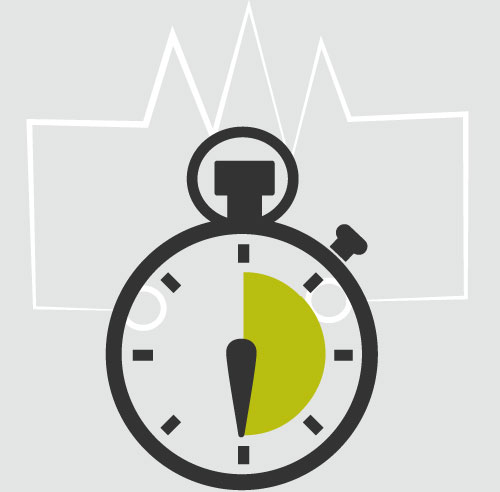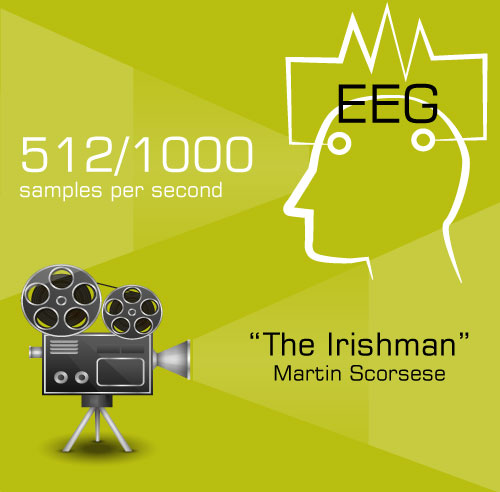
At the other end of the Diagonal Avenue in Barcelona, very close to the Besós River, you can find our colleagues from SPECS-lab. Every day, Javier de la Torre arrives at this unique lab by bike listening to the same album: “I’m wide awake, it’s morning» by Bright Eyes. It’s been only a year since he joined IBEC and he is collaborating in a European project with the aim to develop a large-scale rehabilitation system called ‘RGS at Home’, focused on the effective and affordable rehabilitation of stroke patients. Concretely, the RGS system combines brain theory, Artificial Intelligence (AI) and Virtual Reality (VR), targeting motor and cognitive recovery after stroke.
At SPECS-lab, Javier and his colleagues work in neuroscience and specifically neurorehabilitation, developing scientifically grounded VR scenarios for stroke patients, they also work in brain modelling or robot-human interaction to study behaviour and learning.
Every single Wednesday the lab members have a Group Meeting where one of them presents his latest results. Then, on Thursdays, takes place the “Journal Club”, another weekly meeting where the researchers discuss about the most relevant scientific articles published within the scope of their research lines. But in SPECS-lab not everything is about science, there is also time for leisure. When the sun shines all the members of the lab take the opportunity to eat together and stay for a bit to get some sun and re-charge the batteries before getting back to work.
Apart from that, Javier always tries to find time to catch up with his passion: music. Javier is, in fact, an example of what the eminent physicist Richard Feynman told us many years ago: science and art are not only compatible, they also complement each other! In this regard, the researcher not only holds the Biomedical Engineering degree and a Master in Cognitive Systems and Interactive Media, but also holds a Professional Music Degree in Interpretation and Clarinet. Together with Héctor López, who also works at SPECS-lab, they do some electronic music, so far, just for fun, but we do not rule out seeing them doing a performance in the Christmas dinner this year.
As you can see music is one of his passions, but not the only one, he also loves reading and taking pictures like in the good old days, with analogic cameras that he borrows from his dad. Finally, he is also studying theatre, a discipline from which a lot of knowledge can be applied to corporal expression and oral presentation skills to engage your audience. This is a great example of a perfect mix between science and art!
So next time you go to the other end of the Diagonal Avenue, pay a visit to SPECS-lab and they will be happy to show you around.

 Javier works with physiological data such as electroencephalogram (EEG) signals recorded from an «experimental» wearable EEG headsets measuring up to 500-1000 samples per second, it is loads of brain data and a lot of work!
Javier works with physiological data such as electroencephalogram (EEG) signals recorded from an «experimental» wearable EEG headsets measuring up to 500-1000 samples per second, it is loads of brain data and a lot of work!

Just fitting the EEG headset on someone’s head takes about 30 minutes, and an experimental session can take up more time than the film «The Irishman» from Martin Scorsese, which lasts 3 hours and a half.



